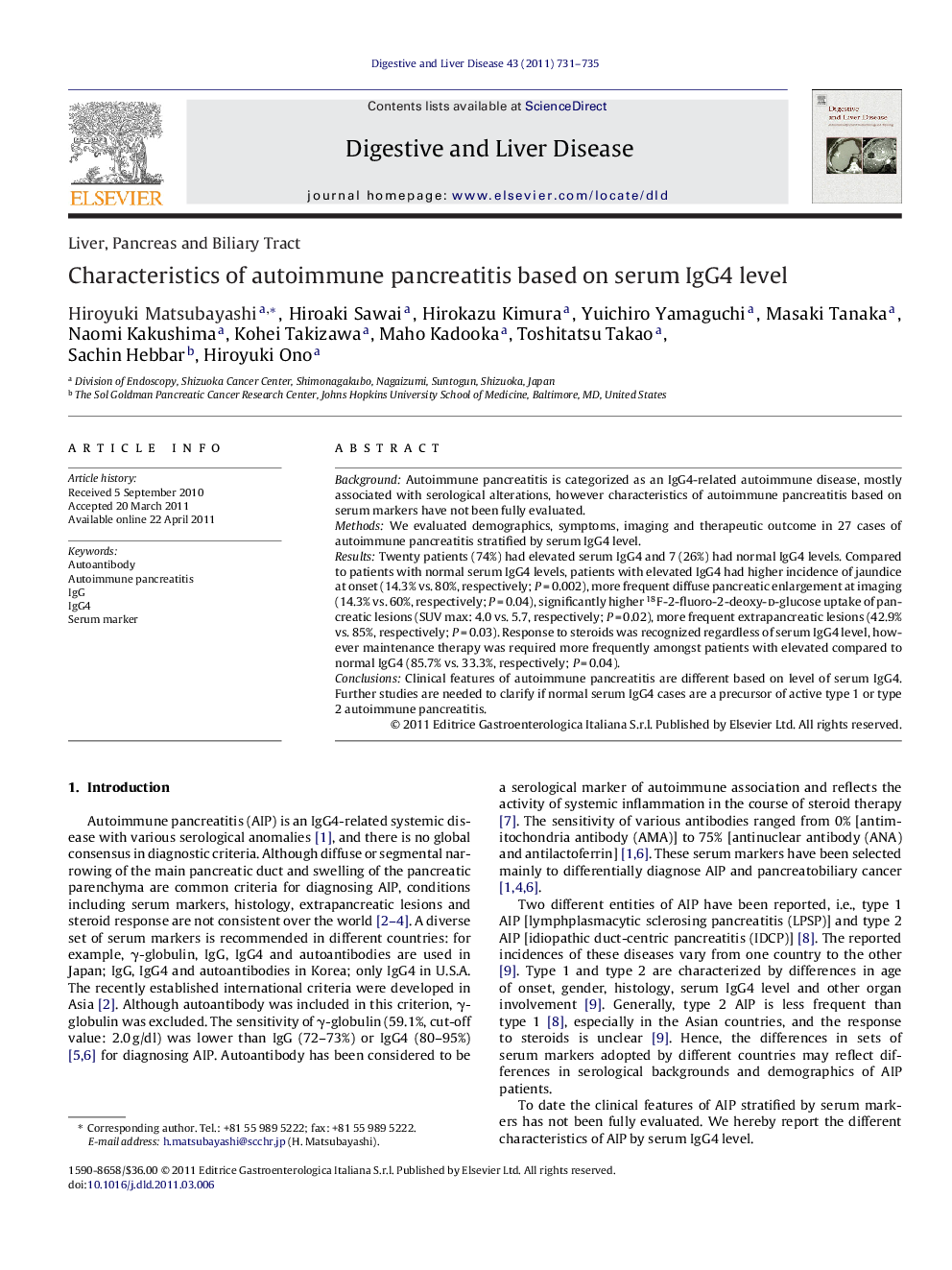| Article ID | Journal | Published Year | Pages | File Type |
|---|---|---|---|---|
| 3263986 | Digestive and Liver Disease | 2011 | 5 Pages |
BackgroundAutoimmune pancreatitis is categorized as an IgG4-related autoimmune disease, mostly associated with serological alterations, however characteristics of autoimmune pancreatitis based on serum markers have not been fully evaluated.MethodsWe evaluated demographics, symptoms, imaging and therapeutic outcome in 27 cases of autoimmune pancreatitis stratified by serum IgG4 level.ResultsTwenty patients (74%) had elevated serum IgG4 and 7 (26%) had normal IgG4 levels. Compared to patients with normal serum IgG4 levels, patients with elevated IgG4 had higher incidence of jaundice at onset (14.3% vs. 80%, respectively; P = 0.002), more frequent diffuse pancreatic enlargement at imaging (14.3% vs. 60%, respectively; P = 0.04), significantly higher 18F-2-fluoro-2-deoxy-d-glucose uptake of pancreatic lesions (SUV max: 4.0 vs. 5.7, respectively; P = 0.02), more frequent extrapancreatic lesions (42.9% vs. 85%, respectively; P = 0.03). Response to steroids was recognized regardless of serum IgG4 level, however maintenance therapy was required more frequently amongst patients with elevated compared to normal IgG4 (85.7% vs. 33.3%, respectively; P = 0.04).ConclusionsClinical features of autoimmune pancreatitis are different based on level of serum IgG4. Further studies are needed to clarify if normal serum IgG4 cases are a precursor of active type 1 or type 2 autoimmune pancreatitis.
